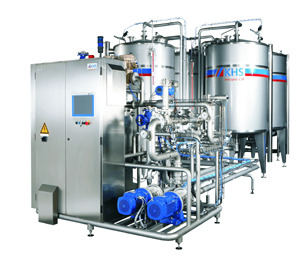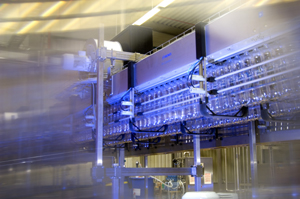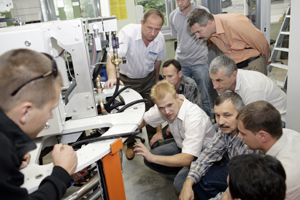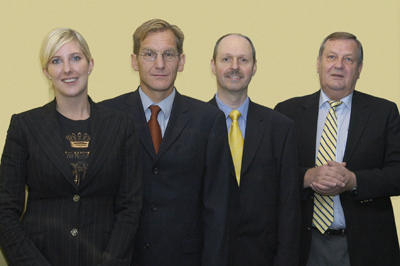Clients want to see minimised erection times for their air conveyors.
Krones AG, Neutraubling, Germany, will at the BRAU Beviale 2007 be spotlighting its complete-system capabilities and its services for mid-tier companies in the beverage industry.
3.3 litres is the capacity of the largest containers that the Krones Contiform S is currently able to produce. The Mexican market, in particular, utilises these formats for carbonated soft drinks. Empirical feedback from the entire Mexican market has shown that this bottle size exhibits a high potential for optimisation in terms of physical and thermal stability.
New heads, new brands - an atmosphere of departure throughout the Karlsberg Group.
If you want to find out before the event where to find certain companies which offer the products you seek, or the Energy pavilion, the Exhibitors Forum and the pavilion with young, innovative companies, click on www.ask-BRAU-Beviale.de, or as previously www.brau-beviale.de.
The 10th PIANETA BIRRA BEVERAGE & CO, international exhibition of beer, beverages, snacks, furnishing and fittings for pubs & pizza parlours, will be held in Rimini from 23 to 26 February 2008.
In September, top executives of Fortune Brands visited Stockholm to talk to a ‘broad constituency’ of interested parties as Sweden draws closer to a planned sale of state-owned Absolut vodka maker Vin & Sprit.
Albert Cramer’s youngest daughter, Christina Cramer, has joined the board of Warsteiner Brewery, igniting a storm of speculation why the flamboyant Managing Director, Prof Dr Gustavo Möller-Hergt, decided to chuck it all in and leave the company.
Before they had to pack their bags, it was announced that the Doemens Academy was not to move to Krones’ headquarters near Regensburg.
The KeyKeg, the revolutionary one-way keg, was launched in November 2006. The KeyKeg proves to be a long-desired solution for beer breweries and wine producers. The KeyKeg consortium received more than 50 requests for tests and most of the producers are running their test programs now. Meanwhile the first orders have been placed and the first KeyKeg production line will start production in October 2007. To be able to fulfil the requests and to produce as close to their clients as possible the KeyKeg consortium is planning another 3 production lines at different locations.





